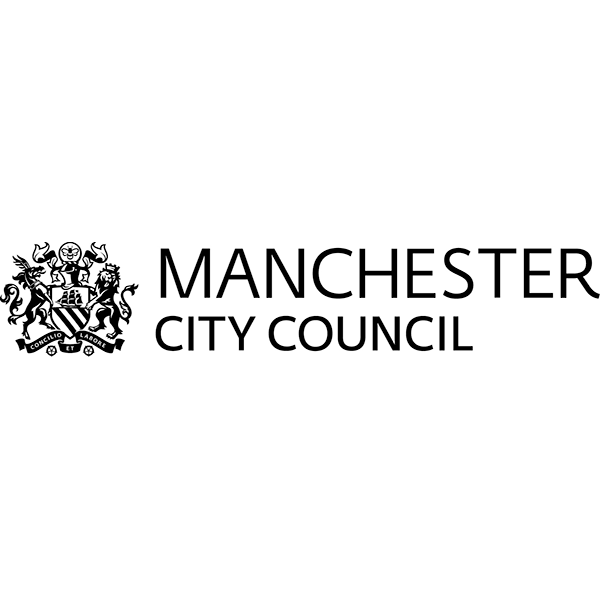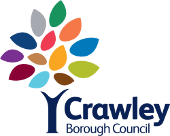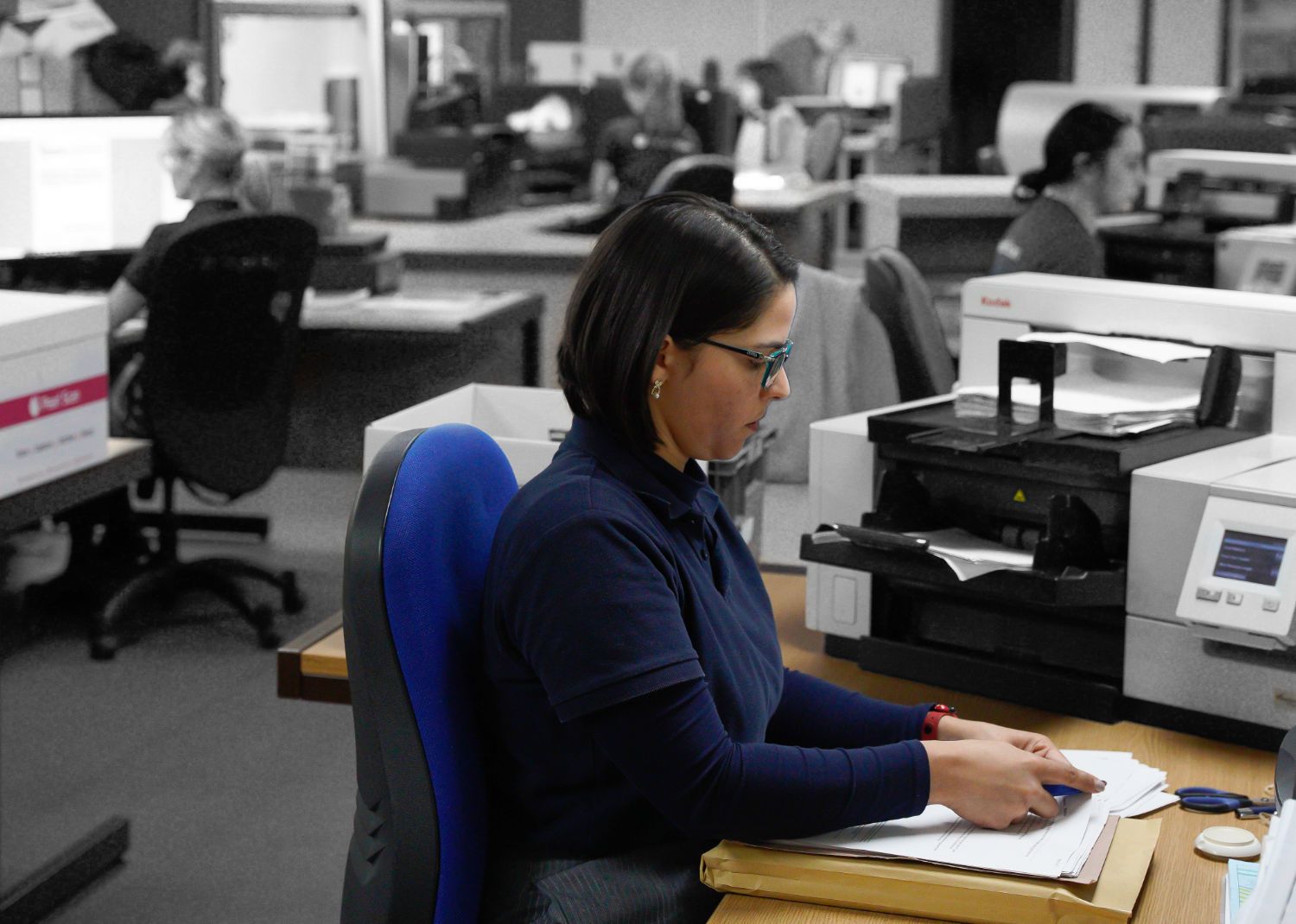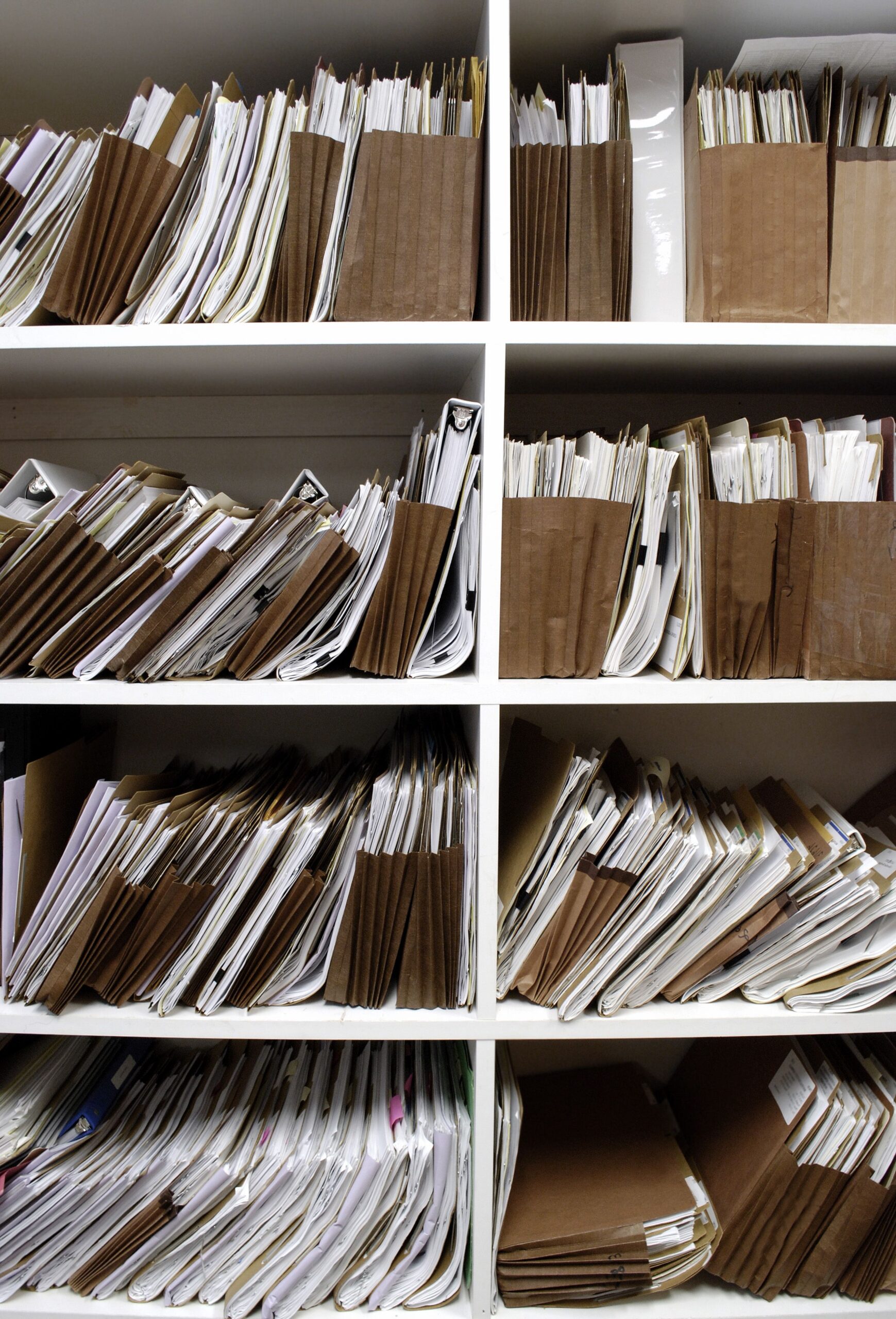The Process for Digitising Archive Records
Scanning archive documents requires a careful and methodical approach to preserve the original material while creating high-quality digital copies. Our process begins with the preparation of your records, which involves examining them for dirt, dust, or physical damage and making any necessary repairs.
Documents are then gently cleaned for optimal scanning results. Next, documents are sorted and categorised based on their type, date, or other relevant criteria to create a logical structure for the digital archive.
Utilising high-resolution document scanners equipped with advanced imaging technology, each document is imaged at an appropriate scan resolution and in the most suitable format, such as PDF, TIFF, or JPEG. Our adjustable settings on scanners accommodate varying sizes, thicknesses, and fragility of archive documents. After scanning, images may be enhanced to improve legibility and overall quality. Optical Character Recognition (OCR) software is often employed to convert scanned images into searchable text.
Quality control is a vital step in our archive digitisation process, with each scanned image thoroughly reviewed to ensure it meets desired quality standards, and any necessary adjustments or rescanning performed. Metadata is added to each digital file to facilitate easy document retrieval and organisation, including information such as the document title, date, author, and keywords. The final digital files are saved in the desired format and transferred to a secure storage medium, like cloud storage, local servers, or external hard drives, with backup copies often created for added security.
Depending on our client’s preferences, original documents can be returned, securely stored, or confidentially shredded once the scanning process is complete. Throughout this process, it is crucial to handle archive documents with absolute care, considering their age and potential fragility, and adhering to any relevant legal, industry, or organisational guidelines concerning document digitisation and storage.








